INTERVIEWS
Managing foreign exchange risk in the global market with AI! The trust and networking at FINOLAB supporting GFIT’s business

After experiencing the “Lost 30 Years,” the Japanese economy now stands at a critical crossroads. With business expansion driven solely by domestic demand no longer feasible, Japanese companies are inevitably required to navigate the complexities of linking with global markets. A major factor contributing to these complexities is foreign exchange fluctuations. Especially in the current landscape, the mechanisms of foreign exchange are considered extremely difficult to predict.
How can companies mitigate the risks posed by foreign exchange fluctuations? G-FIT Co., Ltd. (hereinafter referred to as GFIT、https://www.tradom.jp/company-en), a resident of FINOLAB, advocates a new standard in “forex risk control” utilizing AI. This approach has garnered the trust of many companies, including major domestic clients. In this article, we interview Mr. Shinichi Sakane, Representative Director, co-CEO & CSMO of GFIT.
More accurate prediction of exchange rate fluctuations with the power of “Virtual AI Exchange Analyst”
―Please tell us about your business.
GFIT has developed and provides “Tradom(https://www.tradom.jp/lp-en),” a cloud-based platform designed to manage and appropriately control the foreign exchange risk faced by companies engaged in trade. With the mission of “providing infrastructure that enables any business to compete globally,” GFIT helps mitigate the risks arising from foreign exchange fluctuations, supporting stable management for companies challenging the global market.
―Why can foreign exchange fluctuations pose a risk to companies?
Foreign exchange fluctuation risk is a constant concern for companies that directly trade goods or services internationally.
For example, suppose a company purchases $100 worth of goods when the exchange rate is 100 yen to the dollar. Initially, the cost in Japanese yen is 10,000 yen. However, if the exchange rate shifts to 120 yen per dollar by the time of payment, the cost becomes 12,000 yen. This 20% increase significantly impacts the company’s profit margins.
Most companies find it practically difficult to pass this increased cost onto the prices of their products, and there are limits to how much they can offset through internal efforts. To avoid such situations, companies engage in foreign exchange risk hedging. One common method is a forward contract, which locks in the exchange rate for future transactions to avoid losses due to exchange rate fluctuations between the time of purchase and payment. However, determining the appropriate timing and amounts for these contracts within the complexities of trade transactions is highly challenging.
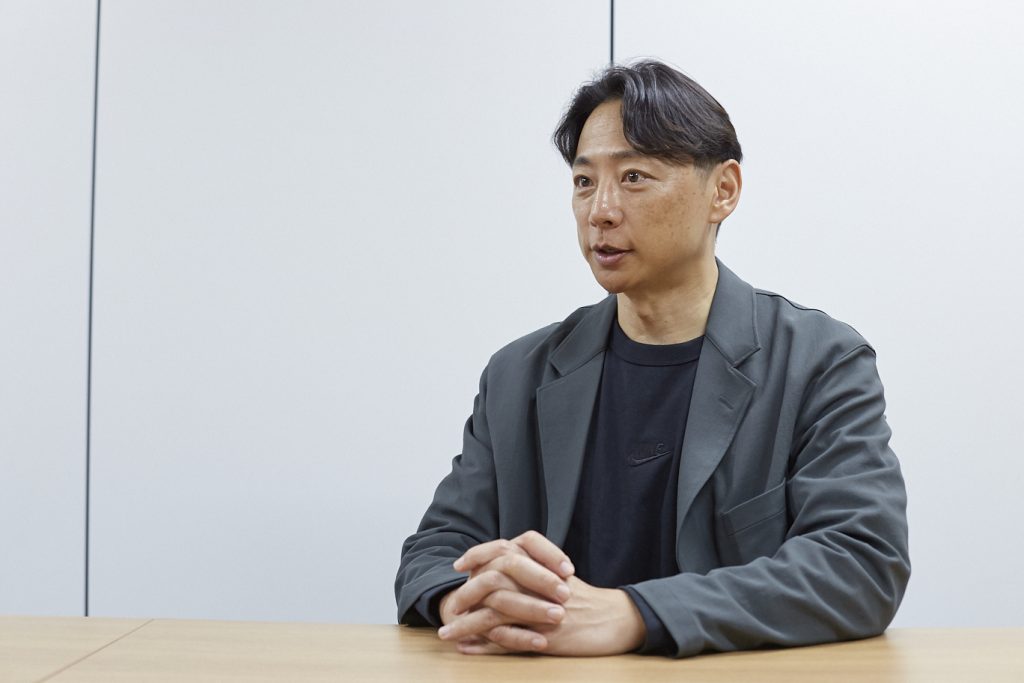
―How does GFIT address this challenge?
Our solution, “Tradam,” primarily visualizes foreign exchange fluctuation risks and helps manage these risks appropriately. Specifically, by using AI technology with our proprietary algorithms and calculations based on financial engineering, we propose the optimal timing and amounts for our clients to enter into forward contracts. This aims to minimize the foreign exchange fluctuation risks that companies face.
―Compared to other companies that offer AI-driven foreign exchange forecasts, what are GFIT’s strengths?
In Tradom, approximately 1,000 virtual AI forex analysts predict future exchange rate trends up to 12 months ahead. Based on the probability distribution of these predictions, we calculate and propose the optimal strategies for forward contracts.
Generally, when using AI to predict exchange rates for asset management purposes, many companies focus on refining a single AI model extensively. However, given the complexity and difficulty of predicting foreign exchange movements, we believe that combining multiple AI models enhances prediction accuracy.
In the actual forex market, the strategies of the players involved are diverse, which causes fluctuations in exchange rates. Similarly, in “Tradam,” about 1,000 AI forex analysts make predictions based on different datasets and scenarios, which allows us to better reflect the actual conditions of the forex market. This approach enables us to forecast a broader range of scenarios.
Foreign exchange fluctuation risks are relevant to all industries
―What currencies do you handle?
Currently, we handle 13 currency pairs. These include major currencies frequently traded by Japanese companies, such as USD/JPY, EUR/JPY, CNY/JPY, and KRW/JPY. We plan to further expand this lineup in the future.
―Are GFIT’s customers mainly Japanese companies?
Currently, yes. To the extent that we can disclose, our clients range from major companies with annual revenues exceeding 100 billion yen, such as Shiseido, Kadokawa, and Japanet Takata, to small and medium-sized enterprises with annual revenues over 100 million yen. Additionally, IT company Mixi also utilizes our services.
―That means not even IT companies can avoid foreign exchange fluctuation risks.
In the case of IT companies, contracts with overseas cloud service providers, such as AWS, present significant foreign exchange fluctuation risks. Since service fees are typically billed in US dollars, the payment costs in Japanese yen increase substantially during periods of yen depreciation, as we are experiencing now. In fact, approximately 60% of Japan’s IT industry is estimated to be affected by such foreign exchange risks.
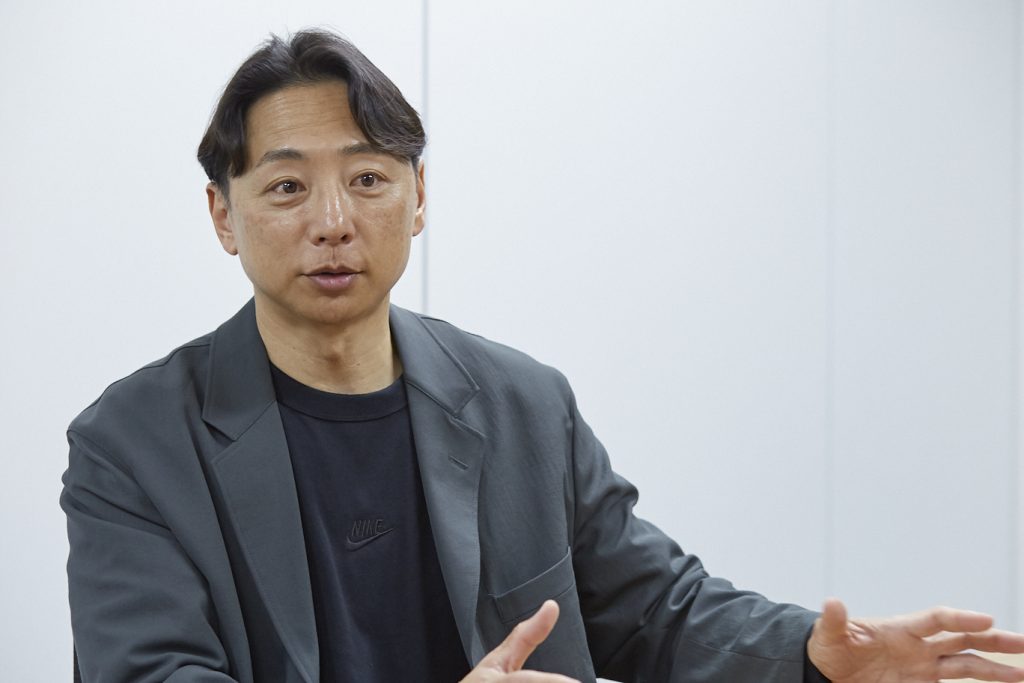
―It seems that GFIT’s solution could be beneficial not only to users of cloud services but also to service providers looking to mitigate cancellation risks.
In fact, we have had customer companies referred to us by AWS, and we have proposed our services to them. Service providers understand the risks associated with cancellations, so managing foreign exchange fluctuation risks is seen as a way to mitigate cancellation risks. We believe our solution can be effective in such cases as well.
Guided by Japan’s great tech-savvy entrepreneurs
―Tell us about GFIT.
GFIT was established in January 2015. It was founded by Mr. Urashima, and I joined as co-CEO in March 2021. Initially, the company was exploring a different business model, but around the time I joined management, we pivoted the business and have evolved to where we are today.
―Can you tell us about your professional career?
I specialized in physical chemistry and completed my doctoral studies at the University of Delaware in the United States. During my time at university, I immersed myself in research, writing code for computer simulations, neural networks in AI, and presented at international conferences.
―So, you already had expertise in AI.
Yes, indeed. However, witnessing the extraordinary talents acclaimed as real geniuses worldwide at international conferences and universities led me to consider giving up on pursuing research. Back then, the concept of startups was not as prevalent, but my interests began shifting towards business management.
What resonated with me deeply at that time were the stories of Japanese manufacturing and tech companies’ founders. Particularly, I was moved by the narratives of great entrepreneurs like Konosuke Matsushita, Akio Morita, and Soichiro Honda, who established remarkable companies.
―I find it surprising that you developed an interest in Japanese business leaders.
I admired and longed for the attitude of post-war Japan, which was burned down to ashes and became an economic powerhouse through the power of technology.
After that, I learned a lot by engaging in the management of multiple technology companies and startups, such as the material science area designing and manufacturing high-precision bodies of artificial satellites and robotics. I feel that these experiences are now being put to good use.
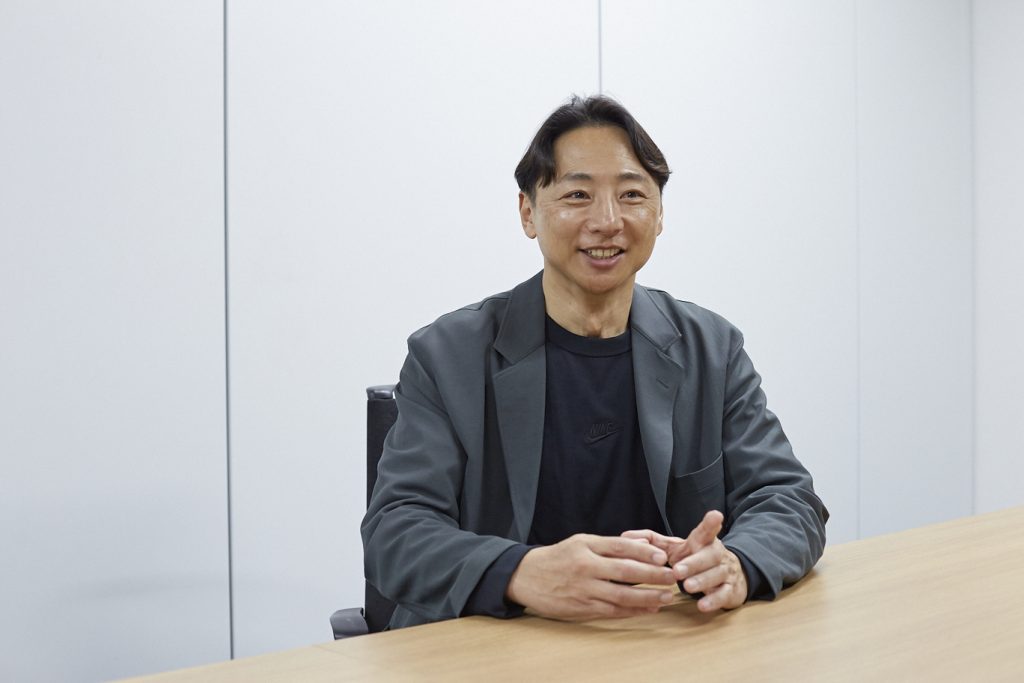
F”Proof of trust” gained by moving into FINOLAB
―When did you move into FINOLAB?
We moved into FINOLAB in July 2022. Until then, we had been operating from a small office, but after securing funding, we reconsidered our office situation.
―Please tell us why you decided to move into FINOLAB.
I had already heard that FINOLAB was highly recognized and well-regarded in the fintech startup community. After participating in events at FINOLAB and visiting their offices, I was convinced that this was the right place for us. Initially, we rented a private room larger than the number of employees we had at the time. However, as our team grew, the space became cramped, so we also started using shared spaces.
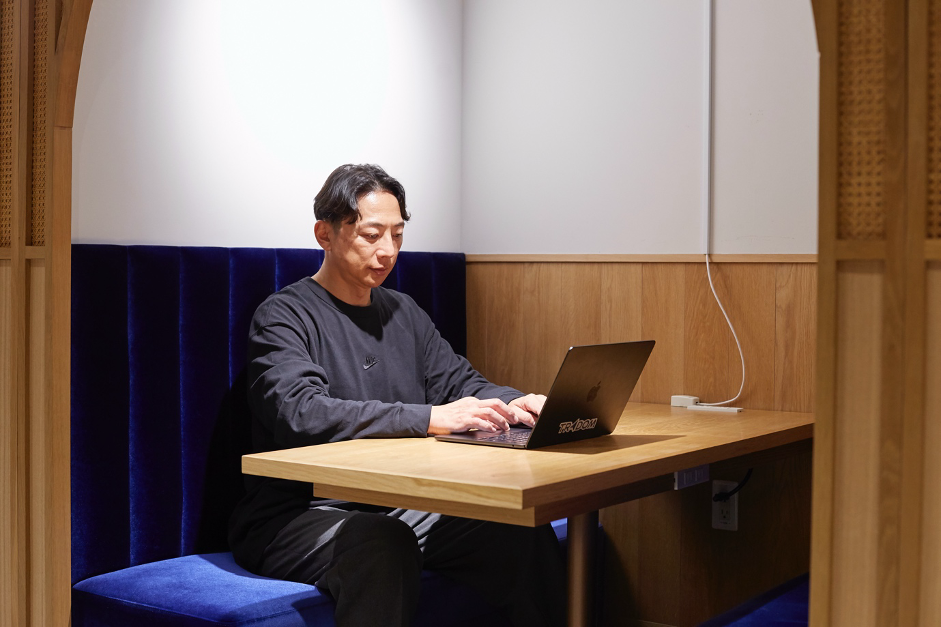
―When deciding to move into FINOLAB, what were the major factors that influenced your decision?
「The “credibility” factor.
Additionally, the networking opportunities with key members of the fintech industry are invaluable.
―Is communication with the Financial Services Agency (FSA) crucial regarding regulatory aspects in fintech?
Absolutely crucial. The benefits of being able to communicate with the FSA through events within FINOLAB are immensely significant. Conversely, lacking such a communication channel with regulatory authorities can pose substantial risks within this industry.
Winner of FINOPITCH2023! A Crucial Platform for Startups to Showcase
―Networking with other companies is also a hallmark of FINOLAB.
In fact, when I step out casually from our office space during business hours and pass by the event area, events are frequently being held. It’s possible to engage in light conversations and encounter moments that make you think, “Wow!,” which can lead to valuable business connections. Being able to network as an extension of our daily work is significant. Additionally, co-hosted events are sometimes held not only at FINOLAB but also in the Inspired.Lab located on the 6th floor of the Otemachi Building. Inspired.Lab hosts many major companies that could potentially become our clients, providing opportunities to communicate and facilitate business matching, which is quite appealing.
―One of the events hosted by FINOLAB is the pitch event “FINOPITCH.” GFIT actually participated and won “FINOPITCH 2023.” After winning “FINOPITCH 2023,” have there been any changes?
Certainly. We have felt a significant change in “recognition” and “trust.” As a startup, staying obscure leads to nothing. Having opportunities to proactively communicate is truly valuable, and being able to present at events like FINOPITCH, where venture capitalists and financial institutions gather, was very much appreciated and a valuable opportunity for us.
―Are FINOLAB’s facilities or services helping your business in any way?
The overall design of the facilities and the ease of using the amenities are significant advantages. In particular, the presence of concentration rooms and support for seminars in the event spaces are beneficial.
During our service launch event, we were greatly assisted by FINOLAB’s media team, who supported us with distribution and other aspects.
―Please tell us about the company’s future outlook.
Firstly, internally, we will focus on strengthening our organizational capabilities and recruiting top-tier executives to streamline our operational structure. We are particularly seeking individuals who can take on pivotal roles in marketing and customer service.
On the business front, we will continue to prioritize serving large corporations while expanding our reach to small and medium-sized enterprises (SMEs) and other businesses. Small businesses, in particular, tend to be significantly affected by exchange rate fluctuations. We believe our solutions can provide substantial support in this regard. By offering clients effective control over exchange rate risks, we aim to support all Japanese companies venturing into the global market.
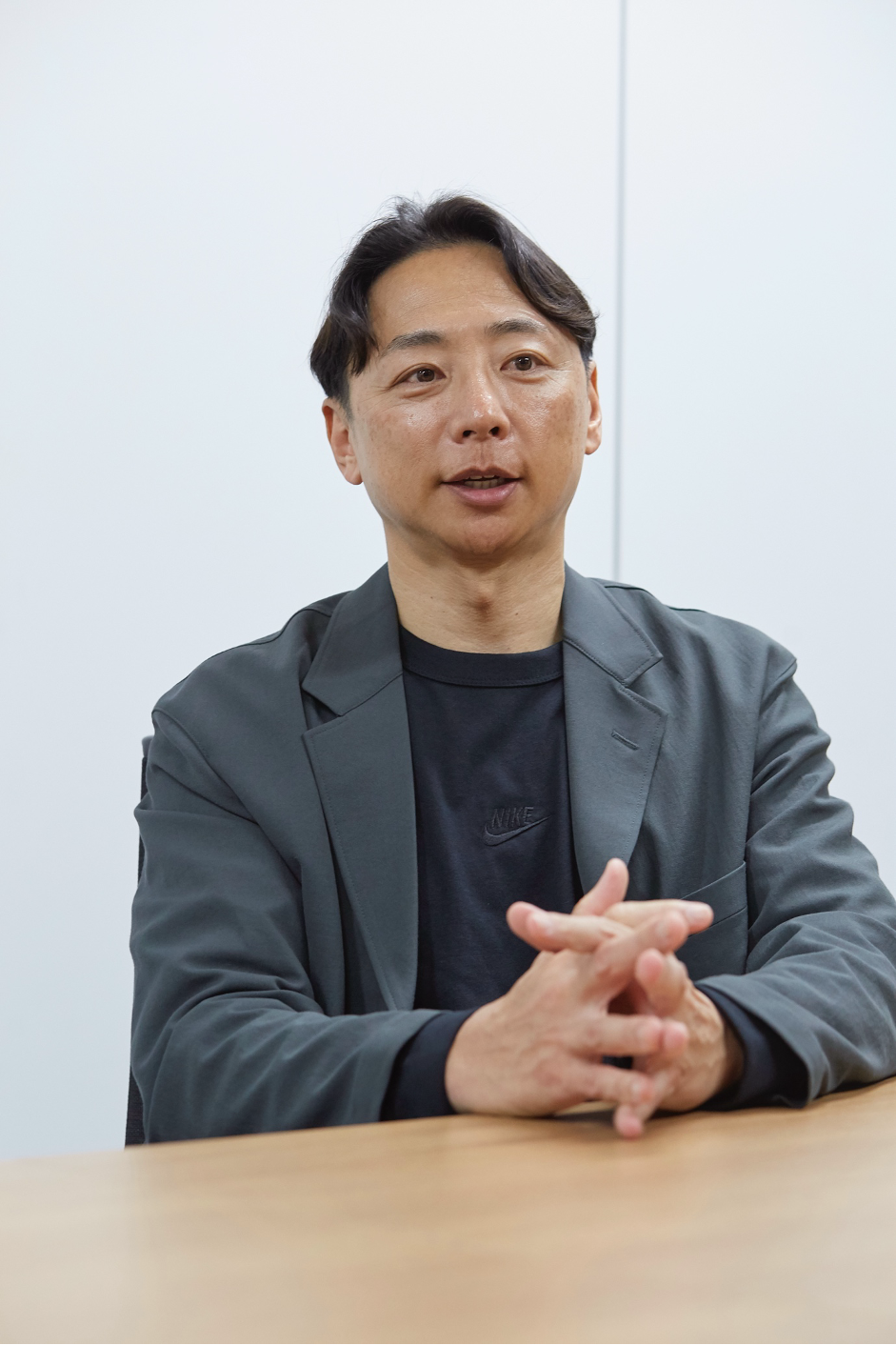
企業情報
GFIT
- Representative Director, co-CEO & CSMO
- Shinichi Sakane
HEAR MORE
-
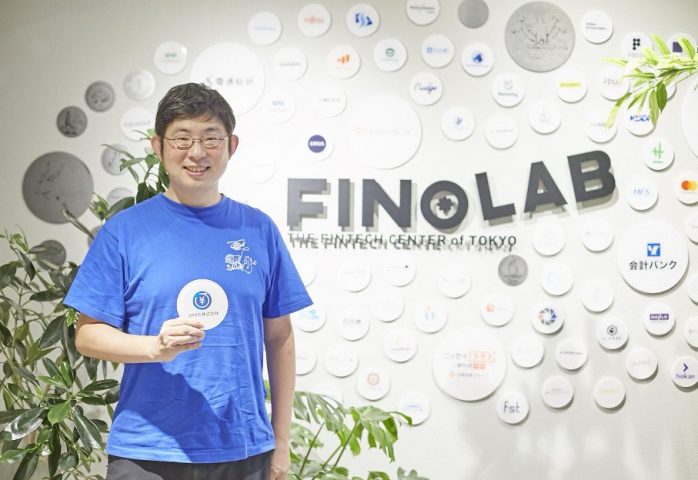
JPYC Inc.
How Stable Coins Are Transforming Society: Innovation Envisioned by JPYC at FINOLAB
-

Ecrowd Inc.
“Ecrowd,” an equity crowdfunding that connects startups with individual investors. Taking full advantage of FINOLAB to design a “sustainable triple-win” world
-

luca.inc
Transforming conventional investment practices in Japan through the democratization of alternative investments: A closer look at LUCA’s vision for an “alternative investment platform from Japan”